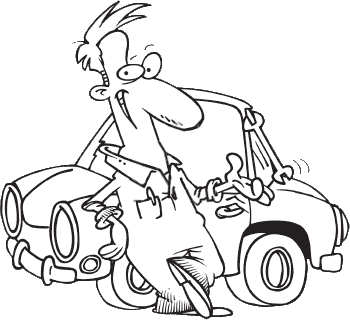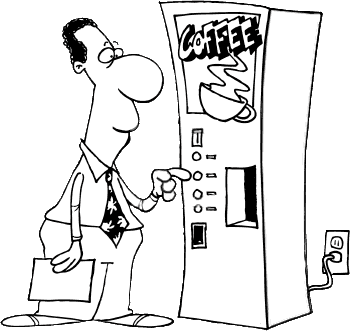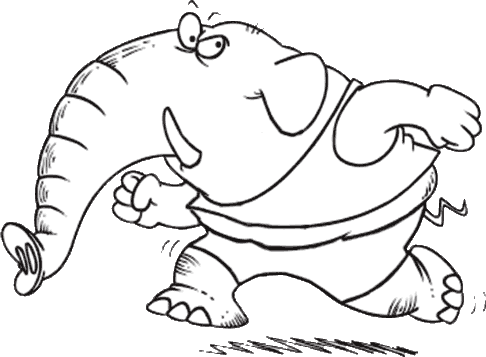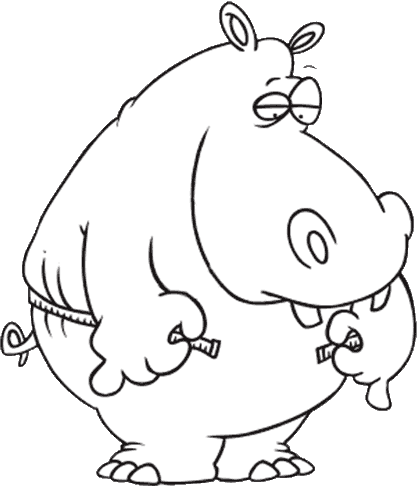



1.SHOULD is an auxiliary verb, a modal auxiliary verb.
2.We use SHOULD or SHOULDN'T to give advice or to talk about what we think is right or wrong. You SHOULD means something like I think it is a good idea for you to do it. You SOULDN'T means something like I think it is a bad idea for you to do it. SHOULD is used to express the opinion of a speaker and often follows I THINK or I DON'T THINK.
3. Structure:
subject + should + main verb The main verb is always the bare infinitive (infinitive without TO) You can't say: We should to do it.
4. There is no short form for should. The negative SHOULD NOT
can be shortened to SHOULDN'T.
5. SHOULD is invariable. There is only one form of SHOULD. 6. When you regret not doing something in the past, you can say: I shouldn't have spoken to him like that. I should have apologized earlier.
You should try to lose weight.
THE USE OF SHOULD
MODAL USE |
EXAMPLES |
NOTES
|
1.Advice, opinion, recommendation |
You should try to lose weight. I think he should be more careful. People should worry more about global warming.
*You should apologise. (it would be a good thing to do) You must apologise.(you have no alternative)
|
*SHOULD is not as strong as MUST. |
2.Obligation, duty |
A man should help his parents when they become old. It's 8:30! I should be at work now.(duty) |
|
3. Probability, expectation |
$10 is enough. It shouldn't cost more than that. Where's Mark? He should have finished work by now. The answer is wrong. It should be 50 instead of 30. |
When we use SHOULD we expect it will happen. |
4.Regret |
It was my grandmother's birthday yesterday. I should have called her. |
**When we use SHOULD HAVE DONE… it means we didn't do it but it would have been the right thing to do. ***We use SHOULDN'T HAVE DONE when we regret not doing something in the past
|
5.Reproach, criticism of the past action |
**You look tired. You should have gone to bed earlier yesterday.
***Jhon shouldn't have drunk so much last night. He's feeling sick now. |
|
1.WOULD is an auxiliary verb, a modal auxiliary verb.
2.WOULD is most commonly used to create conditional verb forms. It also serves as the past form of the modal verb WILL. WOULD can indicate repetition in the past. We also use WOULD to express desire, polite requests and questions, opinion or hope, wish and regret...
3. Structure: subject + would + main verb The main verb is always the bare infinitive (infinitive without TO)
We can't say: I would like to have a rest.
4. WOULD is never conjugated. It is always WOULD.
5. The short form of would is `d (I'd, he'd, she'd etc.) The contraction of WOULD NOT is WOULDN'T.
Yesterday morning, the car wouldn't start.
USE |
EXAMPLES |
NOTES
|
1.Polite requests and questions |
Would you close the door, please? Would you repeat that please?
|
|
2.Desire or offer |
I'd like to live somewhere not far from the sea. Would you like a piece of cake? Would you mind sending this fax?
|
|
3.Wish |
I wish you would stay. (I really want you to stay. I hope you will stay.) He doesn't like his job. He wishes he'd find something more interesting and well-paid.
|
|
4.Conditionals |
If you told him about it, he wouldn't keep your secret. If I had won the lottery, I would have bought a car. |
|
5. Past of `WILL' |
Even as a child, Anna knew she would become a teacher. *Dan said that he would come late that evening. |
*Using WOULD as a kind of past tense of WILL or GOING TO is common in reported speech
|
6.Repetition in the past |
When I was a child, I would spend hours watching cartoons. Every summer we'd go to the seaside. (…we used to go to the seaside) **I used to be very shy when I was a child. ( NOT I would be very shy…) |
We use WOULD (rather like used to) to say that an action was often repeated in the past, but it is not usually done now. **We can't use WOULD for past states |
7.Past refusals |
Yesterday morning the car wouldn't start. He wanted a divorce but his wife would not agree. |
|
THE USE OF WOULD
I'd like a cup of coffee.
Wyszukiwarka
Podobne podstrony:
Posterior Capsular Contracture of the Shoulder
Breaking out of the Balkans Ghetto Why IPA should be changed
L 5137 Dress on thin shoulder straps
Marijuana Terms U Should Know
must should need have to
Schools should provide computers for students to use for all their school subjects
M 5521 Dress without shoulder straps
THE SHOULDER
If Marijuana Were Legalized Reasons Why it Should?
How Smart Should Our Smart?rs?
Should Drugs? Legalized
Evidence for Therapeutic Interventions for Hemiplegic Shoulder Pain During the Chronic Stage of Stro
L 5521 Dress without shoulder straps
Kinesio taping compared to physical therapy modalities for the treatment of shoulder impingement syn
body parts dobble head and shoulders
Ginkgo Shoulderette Shawl A4
Doggcrapp How To Cure Shoulder Problems
Asking for?vice using should
should and ought to
więcej podobnych podstron